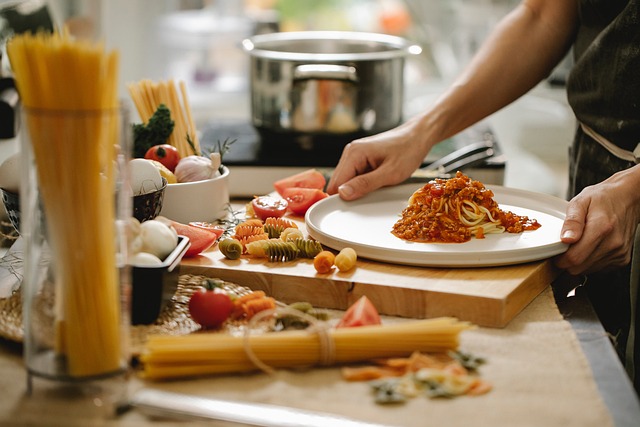Culinary refers to things “related to food,” whereas arts can refer to a variety of diverse interests. Culinary arts are, thus, the practice of preparing, cooking, serving, and presenting food. Culinary arts can refer to any professions that involve preparing, cooking, and presenting food, but this may frequently take the form of meals in a restaurant.
Consider what first makes food appetizing as a straightforward way to approach the subject of culinary arts. Humans evaluate food based on its appearance, presentation, aroma, performance or behavior while being consumed, sensation on the tongue, and, of course, how it makes us feel. These senses are all at work whenever you have food in front of you, even if you are unaware that they all play a part in how much we enjoy it. Making sure that all of these senses are positively fulfilled is the responsibility of the culinary arts expert.
For this reason, a chef takes the effort to ensure that the meal looks tasty, is presented in an attractive or interesting way, smells delicious, and pleases our taste buds. To make sure that all of these elements come together to create the ideal dish, the accomplished culinary arts professional use all of the tools available to them.
A broad range of subjects are included in the culinary arts. Food science and nutrition, ingredient quality, seasonality, flavors and textures, presentation and plate layout, and more are some of these. There are numerous specialties, sub-niches, and job titles that fall within this broad category.
Despite the name, culinary arts actually combine elements of art and science. Cooks and chefs may be more free to experiment and develop original and clever recipes, pairings, and plating’s if they are aware of what’s happening on a cellular or chemical level when they are cooking. They may also be more willing to substitute ingredients, which is common in plant-based culinary arts.
Culinarians are therefore disciplined artists who blend science and art to create something unique. Although the food’s flavor is undoubtedly significant, the culinary arts engage all of our senses to produce a rich, complex experience.
Possible Career paths in Culinary Arts:
-
- Cook or Chef
-
- Catering Cook
-
- Private/Personal Chef
-
- Restaurant Owner or Manager
-
- Recipe Developer
-
- Cookbook Author
-
- Food write or Blogger
-
- Food Photographer
-
- Food Manufacturer
-
- Chef Consultant
-
- Food Stylist
Keep in mind that cooking is a combination of science and art. The science behind culinary technique can be understood with the help of a culinary degree or diploma.
You might learn not only the how, but also the why of many common culinary techniques if you enroll in a formal culinary arts program. Additionally, you are given the freedom to begin your job with virtues like tidy work and awareness of your surroundings. Some chefs who begin their careers in the kitchen may develop poor habits that are challenging to break.
Even while you can improve on this core knowledge throughout your career, your education can also provide you with the skills you need to start working as soon as possible in an entry-level culinary position. In fact, a lot of chefs claim that their culinary schooling accelerated their professional advancement.
How to tell if Culinary Arts is right for you?
-
- If you have a passion for food
-
- If you want a career outside the traditional office
-
- You like to work with hands
-
- You love to learn
How to start a career in Culinary Arts
-
- Attend a culinary school to begin your skills
Your career in food might start off well with a formal degree in the culinary arts. You can enrol in a four-year undergraduate programme, a community college programme where you can earn a degree or diploma, or a specialised culinary school.
-
- Get additional culinary experience in a professional space
Once you’ve finished school, it’s time to start working. If they haven’t already started, graduates of culinary schools can be prepared and ready for their first entry-level job in the sector. (Many students in culinary schools have prior cooking and chef experience, and industry externships frequently result in job offers.)
Your education may serve as the firm foundation on which your professional ladder will stand. You must begin on the bottom rung in order to climb to the top. You might decide to work for a restaurant, catering facility, food maker, or any number of other companies, depending on your objectives.

